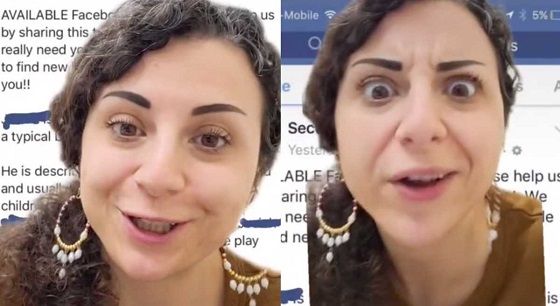Adoption can be a challenging process for both children and soon to be parents, or second-time parents alike. The amount of paperwork and back and forth through the process can be challenging and stressful. On top of that, some adoption agencies don’t have the best for the children at heart and are not doing the best that they can.
Adoption can be a very selfless act, taking on a child to parent is neither easy nor cheap. It’s a big responsibility and we are grateful to those in society who choose to adopt children that need a home. Initially its about finding a child a good home with parents who make them feel loved and protected. But sadly, and unfortunately it doesn’t always turn out that way. In some cases, children are adopted into an abusive environment and suddenly find themselves feeling more alone than ever. I wish this wasn’t the case, and that there were better systems to qualify potential parents. In others still, an adoptive parent may learn that they’re not fully equipped to deal with certain challenges of raising children or this child in particular, leaving them to wonder if a different family situation might be better for the child.
These fringe cases, although rare and often controversial, are typically referred to as “re-homing” a child in the adoption community. It’s a sensitive process that’s filled with emotion, but it’s ultimately done with the child’s best interest at heart, most times. At least, that’s what it’s intended to do, or supposed to do. But recently, a woman on TikTok was floored when she caught wind of how people are promoting “second adoptions” on Facebook in ads that she says describe children “like dogs” at some kind of puppy mill.
The story was first shared by TikTok user @karpoozy on December 13.
In a brief video clip, the woman (who is reportedly named Krista, online at least) highlighted a post she saw from an organization known as Second Chance Adoptions, which describes itself as a matching service for families who’ve had a “disruption or dissolution” of a prior adoption beforehand.
But it’s not the mission of Second Chance Adoptions that gets under the TikToker’s skin. (Though, from the sound of things in the video clip, she certainly has issues with this.) More than anything, it’s the way the agency talks about prospective adoptees that left the woman nearly speechless. Essentially advertising children like they are dogs.
In the original post, which was shared early last month, the agency issued an urgent call to action.
“AVAILABLE Facebook friends,” it read. “Please help by sharing this to your Facebook page! We really need your help. We would not be able to find new homes for these kids without you!!”
But as it continued, Krista started to notice that something about the post sounded a bit, well.. off.
“[Child’s name blurred is] 9 years old,” the description read. “He loves animals and is a typical boy in most ways. He is described as compliant, a follower, kind and usually obedient.”
(Oof — if that last line isn’t a red flag that something is up, we don’t know what is.)
The ad goes on to list more of the boy’s “positive” attributes. Strange indeed. Watch the video:
@karpoozy #greenscreen #adoption #Facebook #baby #adoptioncheck #adopted #learn #learnontiktok #children #kids #wtf #family #children #kid #socialmedia #news #internet #instagram #snapchat #trending #JBLGreekOut #SnowballFightAgainstHunger
“He gets along with children of all ages,” it reads. He “is a good eater, and sleeps well. [He] likes to do typical kid stuff, Legos, role play (play Narnia characters etc.)”
“Please consider if [Child’s name] can be your son,” the post continued. “He could be placed with children who are younger than he is or older. We don’t want him in a home where there is another 9-year-old because [Child’s name] needs to never be …” (And the rest of the text is cut off.)
To be fair to everyone involved here, it’s impossible to know the full backstory. Even Krista herself noted this in her response video. To be fair.
That said, when you describe a child as “compliant and obedient,” the TikToker said it’s a red flag. (“That’s a really long way of saying that this child will do whatever you want no questions asked,” she explained.) How dangerous is this? In the world we live in now.
And when you go one step further to describe a child’s positive attributes in a Facebook post — by saying the child “eats well” and “sleeps well” — don’t be surprised if you get a few raised eyebrows from the public.
“He’s not a dog!” Krista told her followers. “They are literally describing this child like you would see an ad for a dog at a shelter.”
After taking it all in, the TikToker was floored. As were many others.
“Now, we don’t know the entire situation, obviously, from this one Facebook post. But never ever ever ever EVER should you be making posts like this to strangers on the internet to take in a re-homed adopted child,” Krista said.
“This is an easy way to allow children to keep getting exploited,” she continued, noting that describing the child as “compliant” is basically an open invitation to anyone with “malicious intent.”
According to Krista, she says the agency may as well write, “Hey, this is a child that’s really easy to take advantage of!” or “Hey, if you’re looking for someone to prey on, this one’s easy to control.”
“I don’t know why Facebook continues to let this page exist,” she continued, “because they know that there’s an underground market of people who are re-homing children who’ve been adopted on their website.”
A lot of people chimed in with a response to the video.
Many were surprised to learn that “re-homing” a child is even a thing. Now you know.
“I’m so confused,” wrote one TikToker. “Rehoming adopted children? So someone could call and say, ‘Yeah, I’ll take him’ and that would be it? Isn’t there a ton of legalities?” The barrier to entry seems a bit too low and to advertise that a child is obedient and will follow orders seems to set predators up.
“Yes and no,” replied Krista, who said it depends on the type of adoption.
Another person online followed up to say that “private adoption doesn’t actually require input from the government” and that “it’s entirely unregulated.”
Plenty of others said that this practice sounds an awful lot like human trafficking. Which has been found to be more prevalent in our society than we recently knew until we saw the many famous celebrities, elite business class and politicians connected to Ep.stein and Max.well in recent legal cases.
“Facebook banned the trading/selling of live animals, but not live humans??????” asked one person.
“This!” another person chimed in. “I’ve been in FB jail for selling live aquarium fish, but you can sell a whole human child.”
Several people also chimed in and wondered why re-homing children doesn’t count as “child abandonment” in the eyes of the law.
“Tell me you live in America without telling me you live in America …” another person wrote sarcastically.
The practice of “re-homing” has been controversial for years. Understandably so.
A YouTuber by the name of Myka Stauffer opened up about it in May 2020, after finding a new home for her young son Huxley, who has autism. The decision came just two years after the boy was adopted from China and brought to the Stauffer’s home in the US. But after sharing the update with her social media followers, the influencer was hit with a ton of backlash from people who believed that she’d abandoned the child. It probably felt that way to the kid.
“There’s not an ounce of our body that doesn’t love Huxley with all of our being, there wasn’t a minute that I didn’t try our hardest,” Myka said at the time. But “after multiple assessments, after multiple evaluations, numerous medical professionals have felt that he needed a different fit in his medical needs. He needed more.”





